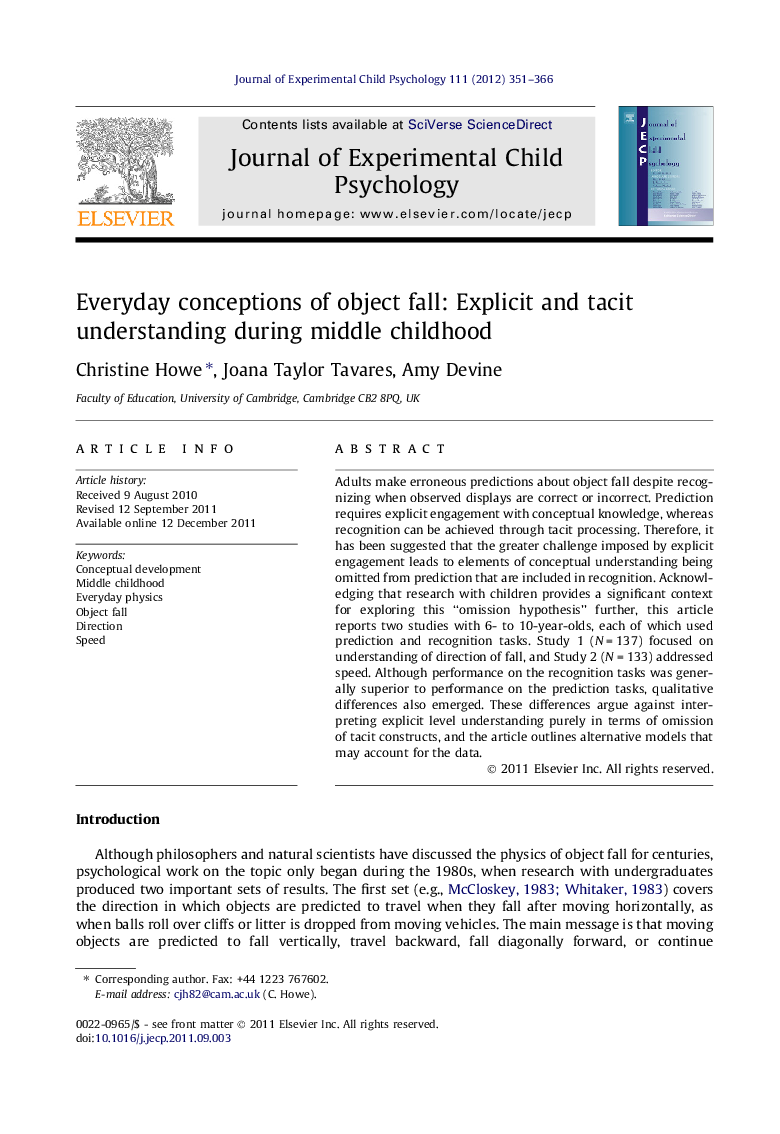| Article ID | Journal | Published Year | Pages | File Type |
|---|---|---|---|---|
| 918236 | Journal of Experimental Child Psychology | 2012 | 16 Pages |
Adults make erroneous predictions about object fall despite recognizing when observed displays are correct or incorrect. Prediction requires explicit engagement with conceptual knowledge, whereas recognition can be achieved through tacit processing. Therefore, it has been suggested that the greater challenge imposed by explicit engagement leads to elements of conceptual understanding being omitted from prediction that are included in recognition. Acknowledging that research with children provides a significant context for exploring this “omission hypothesis” further, this article reports two studies with 6- to 10-year-olds, each of which used prediction and recognition tasks. Study 1 (N = 137) focused on understanding of direction of fall, and Study 2 (N = 133) addressed speed. Although performance on the recognition tasks was generally superior to performance on the prediction tasks, qualitative differences also emerged. These differences argue against interpreting explicit level understanding purely in terms of omission of tacit constructs, and the article outlines alternative models that may account for the data.
► Conceptions of object fall are examined comprehensively and systematically. ► Performance on prediction tasks is compared with performance on recognition tasks. ► A sizeable sample of children is included that covers a 4-year age range. ► Qualitative as well as quantitative differences occur across tasks. ► Results have significance for models of task performance and conceptual growth.
